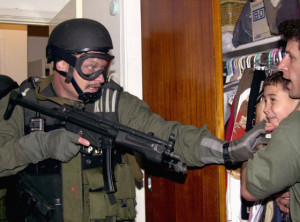
Some Have Forgotten Cuba Didn’t Fall with the Wall
by John F. Di Leo
Published in the Washington Times, Apri 27, 2000 A.D.
In Washington, New York and Chicago, we have been driving cars and riding on trains for a century. But the horse and buggy lives on in Amish villages.
We make our cake batter with electric mixers and light our kitchens with electricity. But that’s not the case in some hill towns still without power and dependent on hand mixers and candlelight.
We urban Americans like to think all the world is moving forward at the same blinding rate of speed as we are, that everyone and every country on earth is more or less just like us – some richer, some poorer – but it’s not that simple. Many places resist the march of time, for good or ill.
People with differing viewpoints on the Elian Gonzalez case can be divided into two groups: those who naively think that Cuba is pretty much like the United States, only poorer, and those who correctly recognize that Cuba is frozen in a tragic time capsule, one of the last vestiges of the many tyrannical dictatorships that covered the globe for much of the 20th century.
In the wake of the Iron Curtain’s fall, many Eastern European countries successfully put their days of tyranny behind them. We act as if communism is dead, as if the fall of the Berlin Wall was a universal awakening. It was not. We cannot think of Cuba as we think of Poland and the Czech Republic. Cuba isn’t there.
In Cuba, it is always the 1970s, when Fidel Castro sent guerrilla soldiers all over the world, fomenting revolution from Nicaragua to Mozambique. Most other countries have changed their governments many times since then, but Cuba has not. The same killers still hold absolute power over their island, from Castro himself to his judges, generals, spies, psychiatrists and teachers.
Castro’s Cuba is an anachronism. The tyrannies of the “Killing Fields” and the KGB-like police live on in Cuba. Ten-year-olds are taken from their families to virtual slave labor in the sugar and tobacco fields. It is a hell in which the government assigns your job and your housing, where a public statement contrary to the party line lands you in prison, where trying to swim to freedom gets you shot. That’s how it will be as long as Castro is in power.
Today’s debate on Elian’s fate is written in American English. We discuss fathers’ rights as if Mr. Gonzalez were a Canadian or an Englishman as if such rights exist in Cuba. We ask for Elian’s father to tell us his true wishes, as if we didn’t know that anyone with family in Cuba risks his family members’ lives if he speaks contrary to Castro’s official policy. Mr. Gonzalez still cannot speak his mind on this matter. He has been surrounded by a Cuban staff since his arrival. It is as if he never left Cuban soil.
In an ideal world, should a child be with his father, if possible? Of course. In most of the world, your father is the family’s breadwinner, a child’s teacher and role model. In most of the world, a child should be with his father. But in Castro’s Cuba, the only breadwinner, role model and teacher is Castro. Your father is just another comrade, just another slave.
Elian’s mother gave her life that her son might breathe free; we must not give Castro custody of this innocent child.
copyright 2000 John F. Di Leo
Follow us: @washtimes on Twitter
Comments are closed.